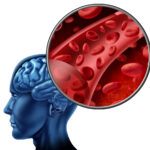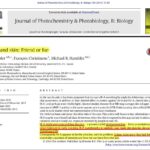Although genetics play a role in memory loss, that doesn’t mean you have to be a helpless victim to the ravages of brain degeneration. By taking action right away if you notice memory loss, you can reverse your risk of dementia and Alzheimer’s before it’s too late.
One study showed that nine out of 10 patients were able to reverse their memory loss. The study subjects also showed significant long-term improvement in memory function.
What was the magic bullet? No magic, just implementation of functional neurology basics.
The subjects underwent a dietary and lifestyle overhaul that included changes in what they ate, regular exercise, supplementation, better sleep, and exercising their brain.
The improvements were so profound that some of the subjects were able to work again, having previously quit their jobs due to advancing memory loss.
Of the 10 study subjects, the only one not to improve suffered from late-stage Alzheimer’s — showing how important it is to take action to reverse memory loss before it’s too late.
Although plenty of functional neurology clinical cases show memory loss can be reversed, this was the first study of its kind.
Functional neurology to reverse memory loss
In the study, subjects reversed their memory loss through the following approaches also commonly used in functional neurology:
- Removing all simple carbohydrates (white rice, pasta, bread, sugar, etc.) from the diet
- Eliminating processed foods
- Gluten-free diet
- Eating more produce and wild fish
- Doing yoga and activities that reduce stress
- Increasing sleep from 4-5 hours a night to 7-8
- Supplementing with methyl B12, vitamin D3, fish oil, CoQ10, curcumin, resveratrol, ashwagandha, and coconut oil
- Exercising a minimum of 30 minutes four to six times a week
- No snacking
- Use of hormone therapy in cases where it was necessary
Researchers found the biggest challenge in the study was complaining from the subjects about all the changes. Nevertheless, all but one enjoyed significant benefits.
How functional neurology can reverse memory loss
One of the more important factors in reversing memory loss is reducing consumption of simple and processed carbohydrates. These foods spike the blood sugar, inflame the brain, and trigger a cascade of chronic health problems.
In fact, some researchers call Alzheimer’s type 3 diabetes because excess sugar and carbohydrates are so destructive to the brain.
Exercise is another vital strategy to reverse memory loss because it has so many beneficial effects on the brain.
It’s also important to get enough sleep every night to reverse memory loss. This is because one purpose of the brain waves produced during sleep is to transfer memories from short-term storage to long-term storage areas of the brain (hippocampus to neocortex). Too little sleep disrupts this process.
A gluten-free diet can be a profound tool to reverse memory loss — in some people gluten triggers inflammation or autoimmune destruction of brain tissue, sabotaging memory function. Other foods such as dairy, eggs, soy, and grains can do the same.
Although most people think a gluten sensitivity causes gut problems, the truth is that it more commonly causes neurological damage. For some people, simply going gluten free profoundly improves their brain health and reverses memory loss.
Rehabilitating brain deficits to reverse memory loss
In addition to dietary and lifestyle approaches, functional neurology rehabilitation techniques can help reverse memory loss. If an area of your brain is under active or over active, functional neurology exercises to restore balance and function to the brain will help improve overall brain function, including reversing memory loss.
Ask my office about ways functional medicine and functional neurology can help you reverse memory loss and prevent dementia or Alzheimer’s.







